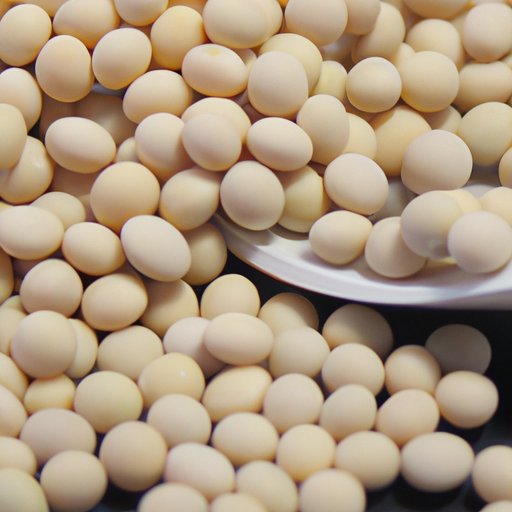What is POIS?
POIS, or post-orgasmic illness syndrome, is a rare condition that affects a small number of individuals following ejaculation. It is characterized by a wide range of symptoms, including fatigue, headache, muscle pain, cognitive dysfunction, and flu-like symptoms. These symptoms usually occur within minutes to hours after ejaculation and can last for several days.
While most people can experience a decrease in energy levels or a feeling of lethargy following ejaculation, individuals with POIS experience more severe and long-lasting symptoms. This can significantly impact their quality of life, including their work, social life, and relationships.
This article aims to provide a comprehensive guide to POIS, including its symptoms, causes, and treatment options, as well as its impact on sexual health and relationships. We will also address common misconceptions and myths surrounding POIS, explore alternative treatments, and provide resources for those affected by this condition.
Understanding POIS: Symptoms, Causes, and Treatment Options
POIS is a relatively new medical condition that is not yet fully understood. Researchers believe that POIS is caused by an autoimmune response to semen, which triggers an inflammatory response in the body. This response can cause a wide range of symptoms that affect different areas of the body.
The symptoms of POIS can vary between individuals, but commonly include fatigue, muscle pain, headache, cognitive dysfunction, and flu-like symptoms such as fever, chills, and sweating. Other symptoms may include skin reactions, breathing difficulties, and gastrointestinal problems.
POIS can be challenging to diagnose as it requires a detailed history of symptoms and an evaluation of the patient’s response to ejaculation. The diagnosis of POIS is usually based on the presence of typical symptoms that occur consistently after ejaculation and other diagnostic tests to rule out other medical conditions.
The treatment options for POIS vary depending on the severity of the symptoms. In some cases, the symptoms may resolve on their own without any specific treatment. However, in more severe cases, medication such as antihistamines or steroids may be prescribed to reduce inflammation and relieve symptoms.
It is also important to identify and avoid triggers that may worsen POIS symptoms. This may include avoiding certain foods or substances that cause an allergic reaction in the body.
Living with POIS: The Impact on Sexual Health and Relationships
POIS can have a significant impact on an individual’s sexual health and relationships. Men with POIS may avoid sexual activity or experience anxiety about the symptoms that may follow. Orgasms can become associated with negative health outcomes, and this can have lasting effects on the individual’s psychological wellbeing.
Relationships can also be strained, with partners feeling frustrated or rejected when sex is avoided. Communication is essential, and it is essential to assure partners that the condition is not related to any dissatisfaction with the relationship or the partner.
It is important to seek medical advice if POIS is affecting your sexual life and relationships. Psychosexual counselling can also be beneficial, and both partners can attend therapy to discuss and find ways of coping with the symptoms.
POIS Misconceptions: Debunking Common Myths and Questions
POIS is still a relatively unknown condition, and there are many misconceptions and myths surrounding it. Some believe that the symptoms are psychosomatic, and others believe that it only affects men. However, POIS is a real and physical condition that affects both men and women.
It is also important to understand that POIS is not a sexually transmitted disease or related to a sexual preference. It is a medical condition that requires treatment, and seeking help is essential for those who suffer from it.
POIS and the Brain-Body Connection: Research Findings and Implications
Recent research into POIS has highlighted the impact of the condition on the brain-body connection. Specifically, researchers have found that individuals with POIS have increased activity in the brain’s cytokines, which are proteins involved in the immune response.
This research is still in the early stages, and more research is needed to understand the connection between the brain and the body. However, it may have implications for future diagnosis and treatment options for POIS.
Alternative Treatments for POIS: Exploring Natural Remedies and Lifestyle Changes
While medication is the primary treatment for POIS, there are also alternative treatments and lifestyle changes that can help alleviate symptoms. These may include natural remedies such as acupuncture or herbal supplements or lifestyle changes such as dietary modifications or yoga.
It is important to discuss any alternative treatments with a healthcare provider to ensure they are safe and effective.
Raising Awareness for POIS: Advocacy Efforts and Resources for Those Affected
There is a need for increased awareness and advocacy for POIS, and there are many resources available for those affected. Support groups and online forums can provide a sense of community, and patients can advocate through social media or fundraising events.
It is essential to seek medical advice if you suspect that you have POIS. A healthcare provider can discuss treatment options and provide further information on what is required.
Conclusion
POIS is a complex condition that can have a significant impact on the individual’s life, especially in terms of sexual wellbeing and relationships. While the exact cause and mechanism behind POIS are still not entirely clear, there are several treatment options available to alleviate symptoms, including medication and lifestyle modifications.
It is essential to seek medical advice if you experience any symptoms of POIS. With proper diagnosis and support, people with POIS can manage their symptoms and improve their quality of life.
